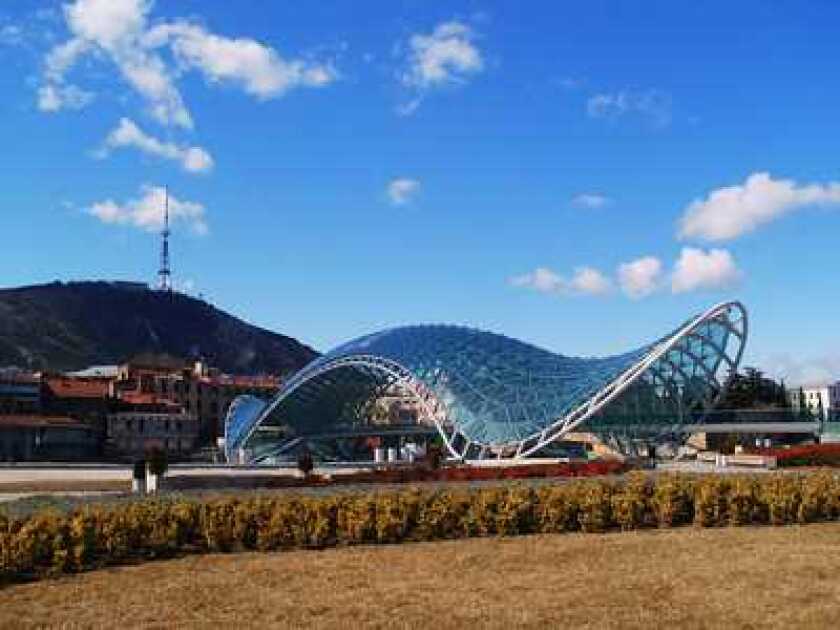Temur Tagiev, head of strategic development at NEQSOL Holding, which acquired the communications company in 2019, said the new offer could help protect its investment in the country’s communications infrastructure.
Forbes Georgia quoted Tagiev as saying: “We have submitted some ideas to the Communications Commission and we are waiting for their response. I hope we find a solution that works for both parties.”
Tagiev declined to go into details due to the legal situation but maintained that an offer had been prepared that will “meet our requirements to protect our investments”. He added: “We believe that this offer will meet the requirements of the Communications Commission as well.”
In August, the Georgian National Communications Commission (GNCC) issued a one-month deadline for NEQSOL to reverse its acquisition of Caucasus Online or face expropriation.
According to GNCC, a final decision was due on 20 September. Capacity has learned from sources that a hearing took place on 24 September, lasting until late in the evening. However, no final decision was reached and “the current status quo remains”. No further details have been released about the amended proposals NEQSOL put to GNCC ahead of the meeting.
The dispute
GNCC first disputed the €51 million deal shortly after it completed in August 2019, saying it was not informed about the change in share ownership. It issued a series of historic fines over 11 months applying “both warnings and financial sanctions against the company”. These actions comprised penalties of 30,000 GEL (US$9,700) and 90,000 GEL ($29,000), and three fines of 270,000 GEL ($87,000).
Then in July of this year the regulator received new powers under a controversial amendment to Georgia’s electronics communication law. Many criticised the move, among them Reporters without Borders (RSF), which in a statement dated 20 July called the new powers “oppressive”.
At that point, GNCC had focused on independent news websites Netgazeti and Batumelebi, and TV channels Mtavari Arkhi and Adjara TV. It had discredited all with public claims of fake news, sabotage or mistranslated interviews.
In August, GNCC turned its attention to NEQSOL Holding issuing a deadline and effective ultimatum to reverse the Caucasus Online acquisition, or face the appointment of a “special manager” to run the company.
Caucasus Online CEO Revaz Kopaladze has told media that the GNCC’s actions have “severely damaged” the firm’s reputation and financial sustainability.
They also echo the hostility that was witnessed towards to the foreign consortium bidding on Georgia’s Anaklia Port project. The nine-phase project to improve access to Central Asia and the Middle East was suspended in January.
What’s at stake?
NEQSOL’s ambitions don’t end with the ownership of Caucasus Online – the firm is heading an international mega-project that promises to accelerate Georgia’s digital economy at a critical time.
Caucasus Online connected Georgia to Europe in 2008 with the 1,200km Caucasus Cable System that for the first time brought stable, high-speed internet to the country. Building on this, NEQSOL acquired the major ISP as part of its Digital Silk Way project.
The Digital Silk Way was initiated to expand this communications network across the region including in Azerbaijan, Kazakhstan, and Turkmenistan. It included the construction of a 1,550km fibre optic line connecting Georgia along Azerbaijan’s rail network to planned Caspian subsea cables, currently in progress. These will connect onwards to Kazakhstan and Turkmenistan, replacing existing infrastructure.
Another major element of the project is a Tier IV data centre in Georgia. All were due to begin construction in 2021 but remain on hold pending dispute resolution.
Taghiyev said: “The goal of the Digital Silk Way project is to connect Europe directly with the Caucasus and Central Asia and build the infrastructure needed to create regional hubs that can attract foreign direct investment. It is time for the region to move forward and embrace the next generation of connectivity. If anything, Covid-19 has highlighted the importance of having in place robust, scalable and secure digital infrastructures that can accommodate businesses that move their operations online.”
Elsewhere in the region, the Digital Silk Way project is progressing without obstruction. Currently the focus is on finalising arrangements for the construction of the 341 km Azerbaijan-Kazakhstan submarine cable.
Capacity understands that there is an intergovernmental agreement in place between Azerbaijan and Kazakhstan, which formalises a 50/50 joint venture between NEQSOL and Kazakhstan for this cable project.
Taghiyev said: “We are extremely surprised and disappointed with attempts by the GNCC to block this [Digital Silk Way] project and in doing so hold back the Georgian economy. When you consider the widespread rollout of 5G, that is also dependent on the ultra-low-latency transfer of data, something that is unachievable on legacy deployments. The upgrades we are investing in will ensure ultra-resilient, direct connectivity between Europe and the region.”





